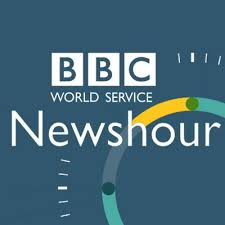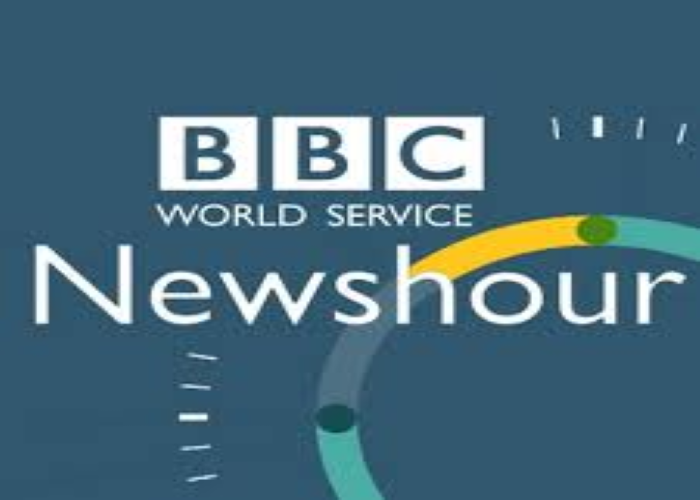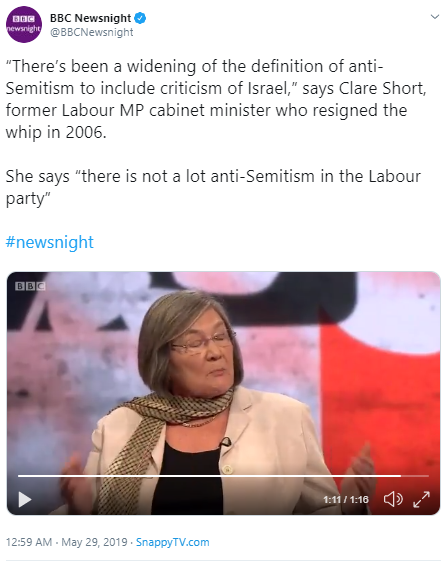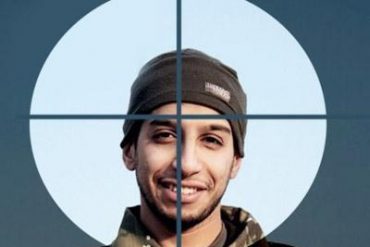Listeners to the BBC World Service radio programme ‘Newshour’ on February 7th heard an item (originally from 45:06 here, now from 41:07) which was introduced by presenter Tim Franks as follows: [emphasis in italics in the original]
Franks: “Israel’s government says it will set up a commission of inquiry to examine allegations that the police used spyware to hack phones of Israeli public figures without authorisation. Officials, protesters, journalists, the son of the former prime minister Binyamin Netanyahu and a witness in Mr Netanyahu’s corruption trial were all targeted without court orders according to reports in the Israeli newspaper Calcalist. The police are alleged to have used Pegasus software, developed by NSO – an Israeli surveillance firm which had previously faced widespread criticism for selling the product to authoritarian governments across the world. Itai Mack is an Israeli-based human rights lawyer who’s…eh…eh…filed cases against NSO.”
Franks closed the item with a description of his sole interviewee on that story as “the Israeli lawyer”.
BBC editorial guidelines on impartiality include a section concerning ‘contributors’ affiliations’ which states:
“4.3.12 We should not automatically assume that contributors from other organisations (such as academics, journalists, researchers and representatives of charities and think-tanks) are unbiased. Appropriate information about their affiliations, funding and particular viewpoints should be made available to the audience, when relevant to the context.”
Nevertheless, listeners were not provided with any information concerning the affiliations and particular viewpoints of Itai (also spelt Itay or Eitay) Mack beyond the opinions he expressed in the interview.
Readers may recall that BBC coverage of stories relating to the NSO group has included amplification of claims made by Amnesty International (and others) and an unsuccessful law suit filed by that NGO to try to revoke its export licence.
Significantly, Newshour listeners were not told that Itai Mack acted as the lawyer for Amnesty International in that case. The Times of Israel reported at the time that:
“Mack has twice petitioned the courts to block NSO Group exports, filing one such appeal in 2017 to specifically prevent sales to Mexico — the country that reportedly made the greatest use of Pegasus to track activists and journalists — and another in 2019 more generally against the firm’s sales abroad in light of reported use of the cyber-surveillance tool to target Amnesty International employees around the world. Both appeals were rejected, mostly due to Mack’s difficulties in providing sufficient evidence to prove that the sales took place and that the technology was used.”
Listeners would no doubt also have found it useful to know that in addition to writing for outlets such as +972 Magazine and Ha’aretz, Mack acts as a lawyer on behalf of political NGOs such as ‘Emek Shaveh’, ‘Ir Amim’ and ‘Combatants for Peace’. His human rights campaigning has included a petition to change the route of the Jerusalem Day march, a petition against a proposed cable car in Jerusalem, a petition to make archaeological sites more ‘inclusive’ and a petition to halt an archaeological excavation in Jerusalem.
Additionally, British and Israeli listeners at least may have liked to know before making up their own minds about Mack’s claims in relation to this particular story that in 2018 he submitted a freedom of information request relating to supposed Israeli government “intervention in British politics […] regarding the UK Labour Party and Mr. Corbyn”. In an interview with the anti-Israel blog ‘Mondoweiss’ at the time, Mack claimed that:
“What is happening to Corbyn is what we see happening daily to BDS activists around the world. They are being harassed and silenced by the Israeli government and its representatives and supporters, claiming that their activities are anti-Semitic.”
Clearly Tim Franks’ presentation of Itai Mack to BBC World Service radio audiences came nowhere near to meeting the requirement to inform them of his interviewee’s “affiliations, funding and particular viewpoints” as laid out in the corporation’s editorial guidelines.






BBC telling the truth? when? where? does it ever? when it comes to Israel